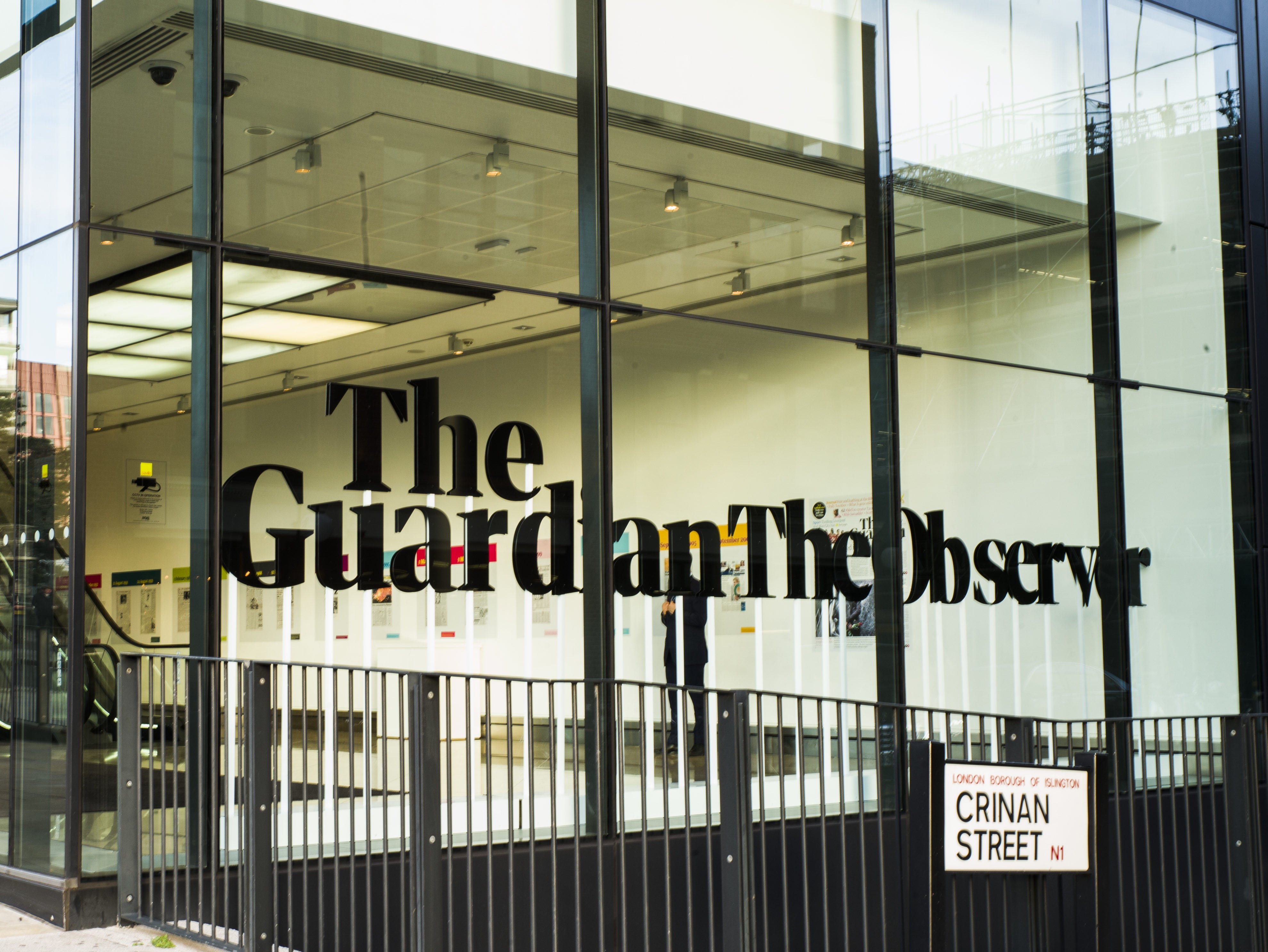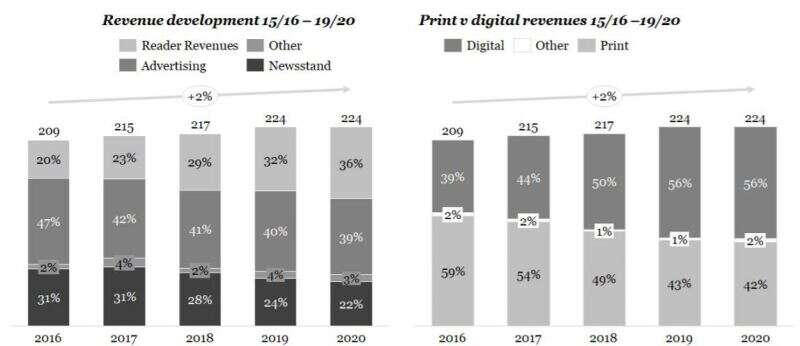
Guardian Media Group is planning to cut 12% of its workforce as the Covid-19 pandemic has taken £25m off the publisher’s forecast revenues for the next year.
It told staff it expects to cut around 180 jobs in total, with 70 of those in editorial. Guardian News and Media currently has 1,495 staff of whom 869 work in editorial and production.
The majority of the other 110 jobs will be in advertising, Guardian Jobs, marketing and Guardian Live.
In a message to staff Guardian editor-in-chief Katharine Viner and chief executive Annette Thomas said advertising, Guardian Jobs, physical events and print had been particularly hard hit since March.
“We have already identified many millions of pounds of cost savings over the past few months, which include deferring the company-wide pay rise, placing around 100 colleagues’ roles on furlough, reducing the size of the executive committee, reducing the use of casual staff, and making major reductions in our marketing, travel and other budgets across the organisation,” they said.
“Even after taking these measures into account though, we face unsustainable annual losses in future years unless we take decisive action.
“It is clear that we will need to make significant cost savings, and change the way we work, and we are sorry to tell you that this will mean that there will be job losses over the coming months.”
The news came as Guardian Media Group published its financial results for the 12 months to 29 March.
Revenue was down 0.4% from £224.5m in 2019 to £223.5m as the company said “good growth” in its subscription and contribution reader revenues had offset declines in advertising and newsstand revenues, both trends which were exacerbated further in March.
GMG reported a pre-tax loss of £36.8m versus a pre-tax profit of £31m the previous year.
It made an operating loss of £17.5m versus an operating loss of £16.6m a year earlier.

Digital made up 57% of revenue after growing slightly from £125.3m the year before to £125.9m.
Its adjusted net operating cash outflow was up slightly to £29m from £28.1m in 2019, which it said was in line with expected long-term returns from the Scott Trust Endowment Fund of £25m to £30m.
The cash endowment fund was down from £1.013bn to £954m.
The results reveal that editor Kath Viner’s 5% pay rise took her total pay and benefits for the last financial year to £391,000.
The document also reveals that outgoing chief executive David Pemsel received a pay-off of £184,275 when he left the company on 2 December last year. His successor, Annette Thomas, has the same salary: £630,000.
Thomas said GMG is “well positioned” for the future after a second year of meeting its financial targets. The publisher said in 2019 it had broken even after a three-year strategy to turn its finances around.
“However, we live in a time of great economic uncertainty, and there are many challenges ahead for the global news media sector,” Thomas said.
“Today we have announced measures to align our operating model with our forward strategy, reduce costs and focus on the long term growth opportunity in our core business – impactful journalism and reader relationships – in order to promote a more sustainable future for the Guardian.”
GMG said it saw a record 1.5bn unique browsers and 16.4bn page views to its digital platforms in 2019/20, growth of 20% on the previous year.
It said it had more than 790,000 recurring monthly supporters at 29 March and had received an additional 340,000 one-off contributions in the previous 12 months taking it over the 1m supporter mark for the year.
Thomas and Viner told staff the reader supporter model had “proved successful” despite the pressures of coronavirus, proving the strategy had been “the right one”.
They said their main goals for the next few month will be to reduce costs and increase the focus on both impactful digital journalism and digital recurring reader revenues.
Picture: Graeme Robertson
Email pged@pressgazette.co.uk to point out mistakes, provide story tips or send in a letter for publication on our "Letters Page" blog
